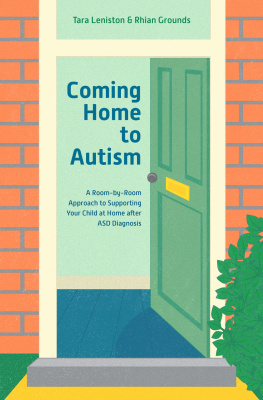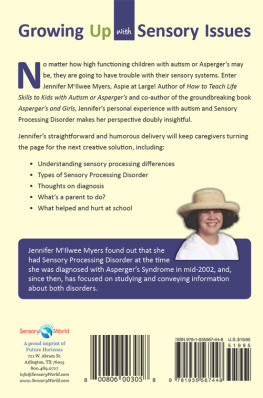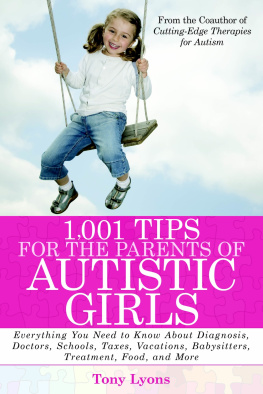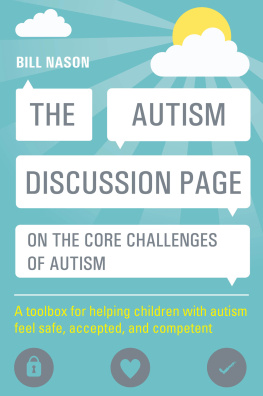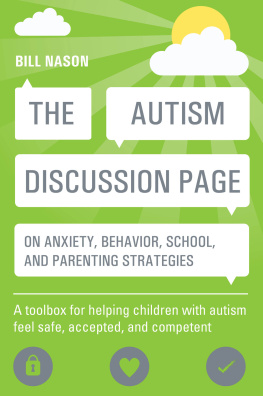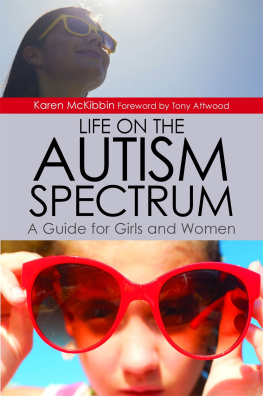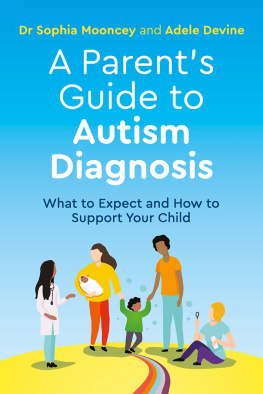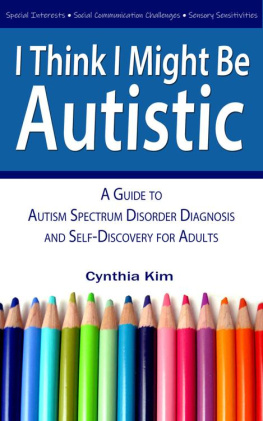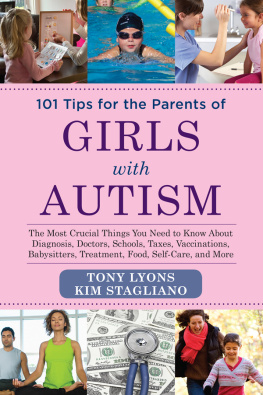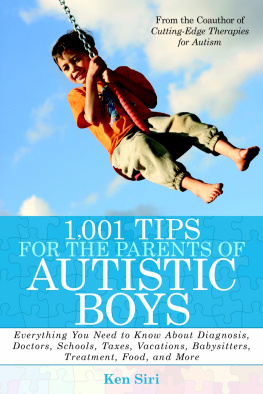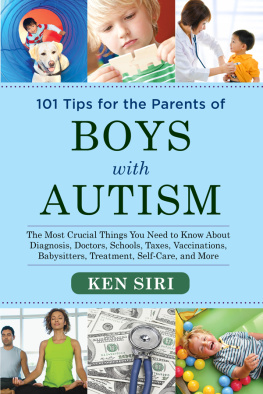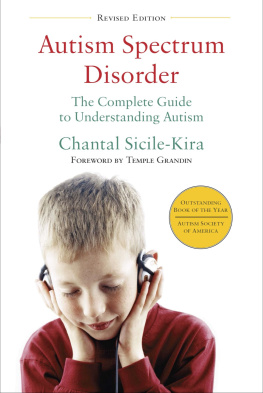DEDICATION
For Thomas, Benjamin, Hector and Marcus



ROBERT HALE
First published in 2016 by
Robert Hale, an imprint of
The Crowood Press Ltd,
Ramsbury, Marlborough
Wiltshire SN8 2HR
www.crowood.com
www.halebooks.com
This e-book first published in 2016
Sarah Ziegel 2016
All rights reserved. No part of this publication may be reproduced or transmitted in any form or by any means, electronic or mechanical, including photocopy, recording or any information storage and retrieval system, without permission in writing from the publishers.
British Library Cataloguing-in-Publication Data
A catalogue record for this book is available from the British Library.
ISBN 978 0 7198 2048 9
The right of Sarah Ziegel to be identified as author of this work has been asserted by her in accordance with the Copyright, Designs and Patents Act 1988.
CONTENTS
PREFACE
I HAD BEEN A nurse and was now a mother of twins, but I had never met a child with autism until the day a doctor declared out of the blue that both my boys, then aged nearly three, had autism and that there was little I could do about it. He was wrong. There is much that a parent can do, and I have spent years acquiring that knowledge.
At the time of the diagnosis I desperately wanted a book to read that would give me hope and tell me what to do. I could not find one. Thirteen years later, I now have four beautiful boys all with autism and a world of hard-learned advice to pass on, so now I have written that book for you.
Autism is a complex, poorly understood disability, and as parents we are often isolated and left to fight our own battles. We fight for what our children need and deserve and if it seems there is little empathy for our children, there is often even less for us as parents. So this book covers not only the practicalities of how to help your child, but also the emotional impact that having a child with autism inevitably has on a family.
Most importantly perhaps, I wanted to convey a message of hope. My boys were all diagnosed with the more severe form of autism at an early age, but each one has developed and changed into a wonderful young person who has exceeded all our expectations. Their success is all the proof we need as parents to persevere and never give up hope.
I hope this book will help you on your journey, whether you are a parent or someone who would like to understand more about coping with autism.
LIST OF ABBREVIATIONS
ABA | Applied Behavioural Analysis |
ADD | Attention Deficit Disorder |
ADHD | Attention Deficit Activity Disorder |
ASD | Autistic Spectrum Disorder |
BAS | British Ability Scores |
CBT | Cognitive Behavioural Therapy |
CHAT | Checklist for Autism in Toddlers |
DCD | Developmental Coordination Disorder |
DLA | Disability Living Allowance |
DSM | Diagnostic and Statistical Manual |
DWP | Department for Work and Pensions |
EEG | Electroencephalogram |
EHCP | Education and Health Care Plan |
ENT | Ear, Nose and Throat surgeon |
EP | Educational Psychologist |
GP | General Practitioner |
IEP | Individual Education Plan |
IQ | Intelligence Quotient |
LA | Local Authority |
LSA | Learning Support Assistant |
NAS | National Autistic Society |
NHS | National Health Service |
NICE | National Institute for Health and Care Excellence |
NT | Neurotypical |
OCD | Obsessive Compulsive Disorder |
OT | Occupational Therapist |
PDD-NOS | Pervasive developmental disorder not otherwise specified |
PECS | Picture Exchange System |
SENCO | Special Educational Needs Coordinator |
SEN | Special Educational Needs |
SEND | Special Educational Needs and Disability |
SLT | Speech and Language Therapist |
GETTING A DIAGNOSIS
O NE OF THE CRUELLEST twists in the diagnosis that is autism is that nearly all children with autism will be born without any obvious disability (the exceptions being a child born with Downs syndrome or another coexisting condition). When your baby is born, you will have absolutely no idea that he or she is anything but perfect. If you have a child with Downs syndrome, you may be aware of this predelivery or from birth, but you will have no indication that your child too may additionally develop or show signs of autism in a few years time. But first, what is autism?
A History of Autism
The diagnosis of autism was first defined by Leo Kanner in 1943. He used the word autism from the Greek auto (meaning self) to describe children with certain symptoms that meant they seemed to live within themselves. His definition of autism requires that symptoms are apparent by the age of three and is also known as classic autism.
The other two most well-known disorders in the autistic spectrum are Aspergers syndrome, which is a milder form of autism in which there are no delays in language but there are significant problems with social communication, and pervasive developmental disorder not otherwise specified (PDD-NOS), which may be diagnosed when the full set of symptoms or criteria for autism or Aspergers syndrome are not met.
Very sadly, in the 1960s, Bruno Bettleheim, the director of a home for disturbed children, had a theory that autism was caused by cold and emotionally distant mothers whom he called refrigerator mothers. Bettleheim felt that these mothers were to blame for their childrens development of autism. At the time this was thought to be an acceptable theory. So, for an earlier generation of families with children with autism, there was little or no help or support available and, in addition, the mothers were blamed for their childrens problems. To us now, this seems inconceivably cruel and quite medieval in basis. Although his theory has been totally disproved, even now you may sometimes hear mention of it and some parents unfortunately may still feel, or be made to feel, that they are in some way to blame for their childs autism. People may ask indirectly whether you suffered from post-natal depression or something which they may feel led to you not bonding sufficiently with your child. There is another disorder if that is the right term for these conditions whereby a child may be diagnosed as having an attachment disorder. This is a disorder that usually affects children who have been adopted or placed in foster care at a very early age and, although some of the symptoms may be similar to those presented by a child with autism, it is indeed a very different disorder with a totally different cause.
Next page


